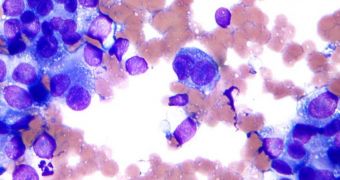You can now add another benefit to consuming a small amount of coffee daily. According to new research, it would appear that people who use caffeine are less likely to develop basal cell carcinoma, the most common form of cancer.
Researchers found no correlation between coffee intake and people's risks of developing other types of cancer, such as melanoma. The team believes that caffeine is the active compound in coffee responsible for this protective effect, but that has yet to be determined with precision.
Details of the new investigation appear in a paper entitled “Increased Caffeine Intake Is Associated with Reduced Risk of Basal Cell Carcinoma of the Skin,” which is published in the July 1 online issue of the American Association for Cancer Research (AACR) journal Cancer Research.
The investigation was led by experts at Brigham and Women's Hospital, Harvard Medical School, Harvard School of Public Health and Tianjin Medical University Cancer Institute and Hospital, in Tianjin, China.
“Our data indicate that the more caffeinated coffee you consume, the lower your risk of developing basal cell carcinoma,” BWH associate professor Jiali Han, PhD, explains. He also holds appointments at the Harvard Medical School and the Harvard School of Public Health.
However, the expert is quick to point out that people should not seek to increase the amount of coffee they consume daily based on this study alone. He believes that more work is needed to establish the exact nature of this correlation.
“Our results add basal cell carcinoma to a list of conditions for which risk is decreased with increasing coffee consumption. This list includes conditions with serious negative health consequences such as type 2 diabetes and Parkinson’s disease,” Han adds.
In the United States, basal cell carcinoma is the most widely diagnosed form of skin cancer. Although it evolves at a relatively slow pace, it is lethal, and places a huge strain on the public healthcare system.
“Given the large number of newly diagnosed cases, daily dietary changes having any protective effect may have an impact on public health,” Han concludes.

 14 DAY TRIAL //
14 DAY TRIAL //